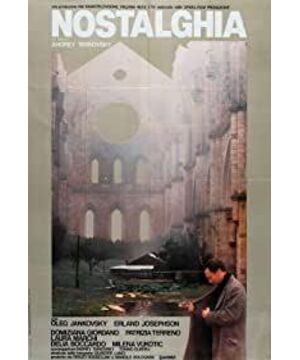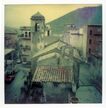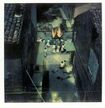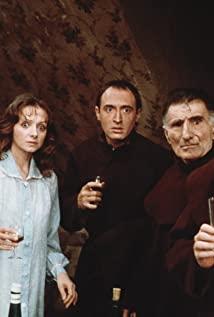I believe that the image of Gocharkov in the film and the fiery emotion for his homeland come from Tarkovsky's own feelings. During his film creation in the former Soviet Union, Tarkovsky was harassed by the harsh censorship department at that time. In the early creation, he compromised many times, which seems to have gone against his original intention of creation. Finally, in the later creation, he couldn't bear it anymore. With the help of his friends, he came to Italy with difficulty and was far away from his homeland and his relatives. He hopes that the liberal policies here will allow him to better engage in film work. The loneliness of being alone and the strong cultural differences prompted the wanderer to have a strong nostalgia for his hometown of the Soviet Union and his family. "Nostalgia" was born in this situation.
Tarkovsky's life was miserable. In his more than 20 years of film creation, he left less than 8 works to the world, but he is immortal. His works are full of the deepest and most worrying concern for the suffering Soviet people and all mankind. He created a new language for cinema, and his films are full of poetic feelings and a sense of urgency peculiar to Russians. He expresses the broad, profound and solemn religious theme in a poetic film language.
The author's longing for his hometown contained in "Nostalgia" is so simple and profound. In the film, the thick fog that has not dissipated is like a touch of nostalgia, which has been lingering in the viewer's mind for a long time. Tarkovsky's film, one cannot fully appreciate the emotions contained in it, and this nostalgia is no exception. When you can calm down and watch it a few more times, you will find the feeling you felt when you first watched the film. That faint nostalgia is so intense and sincere in an instant, it once moved you to tears. It's like watching Tarkovsky's other film, The Mirror. In The Mirror, Tarkovsky expressed his infinite respect and love for his mother. The image of the mother presented in the "Mirror" is holy, the mother is eternal, and the mother is immortal.
When you first watch "Nostalgia", you will feel that the film is rather boring: the large part of the film is a long shot with a fixed camera, there are not many lines between the characters, and there is no storyline to speak of, which makes the viewer feel very uncomfortable. . This is the difference between European humanistic films and other types of films. Most European humanistic films downplay the storyline and abandon the traditional dramatic conflict, and advocate a kind of artistic conception and the most intuitive feeling. This sense of art is like painting. and poetry. Of course, this kind of movie should not be impetuous. You must completely calm down and watch it several times. After a long time, you can also chew some flavors from it, and gradually develop your own unique movie viewing experience.
View more about Nostalghia reviews











